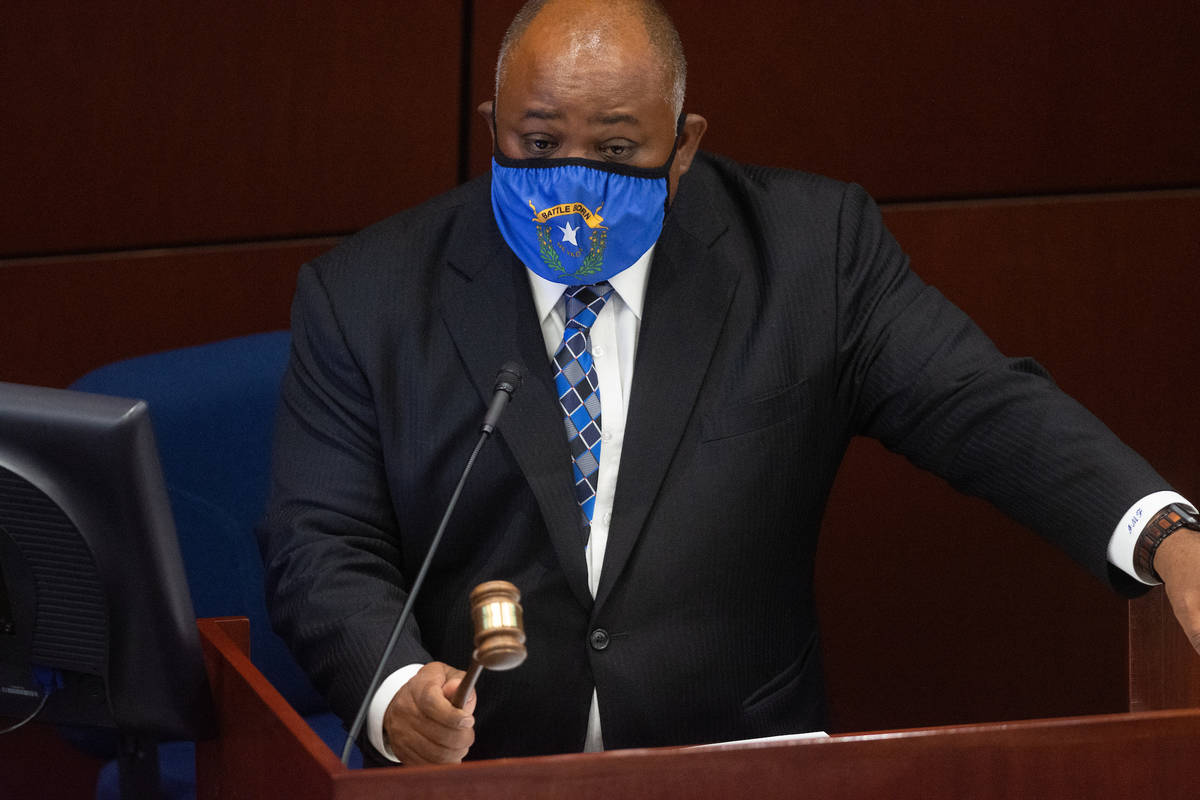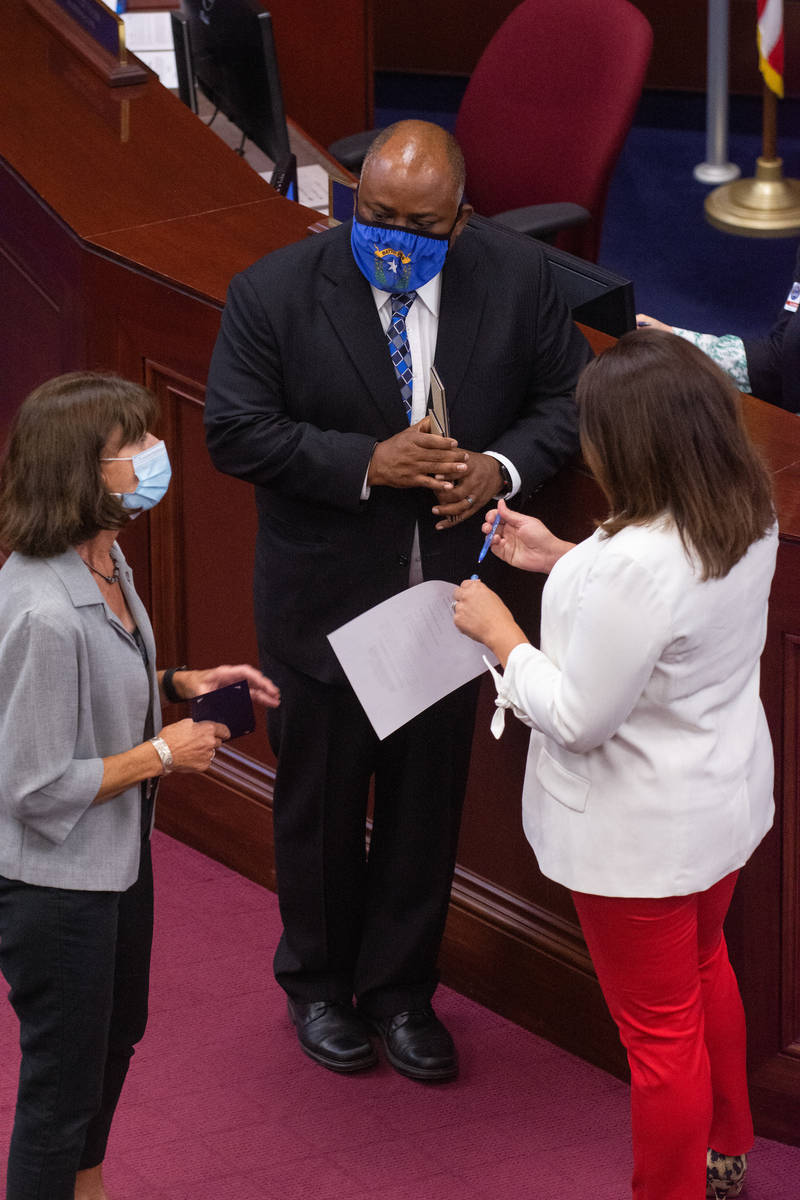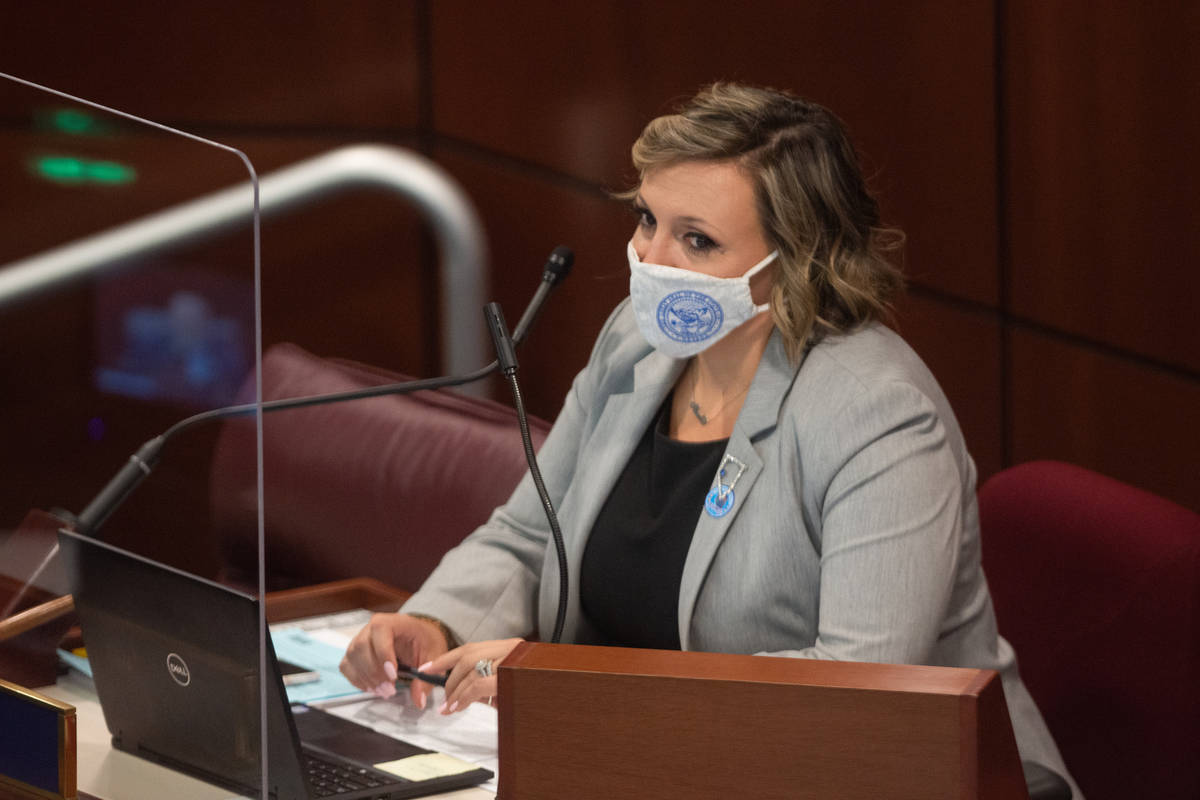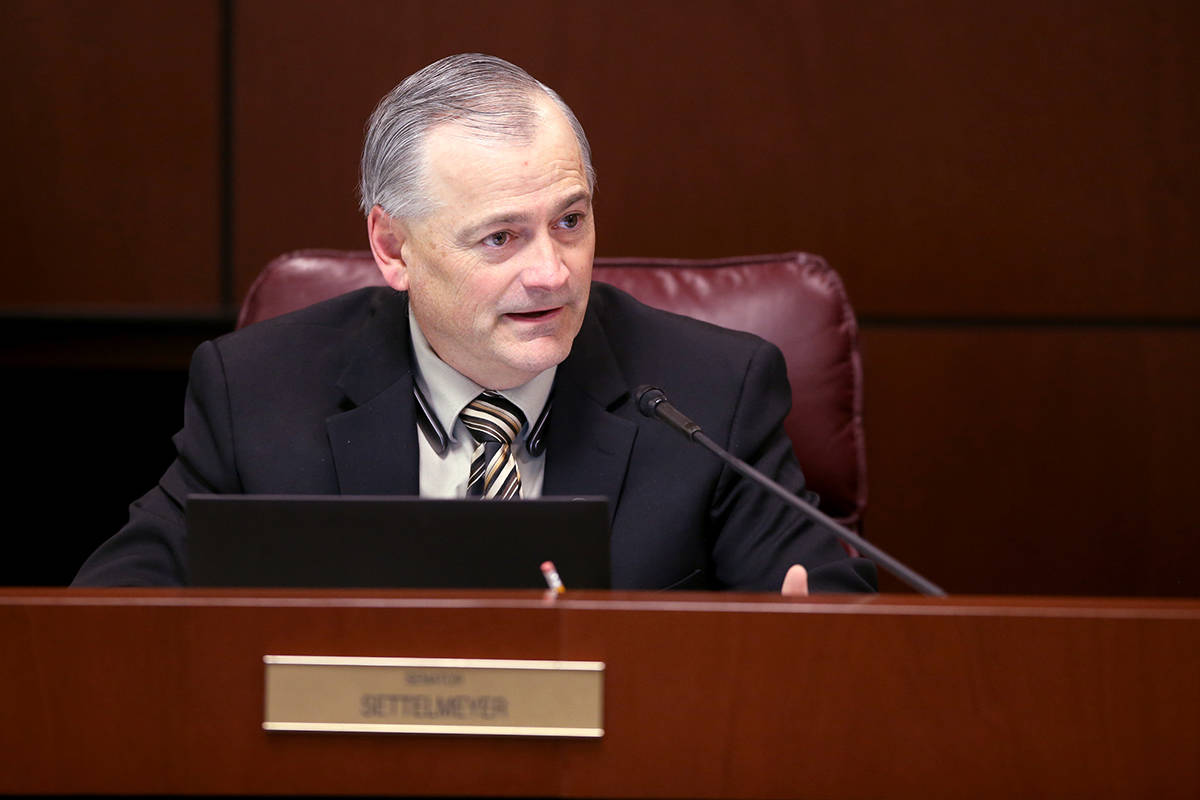Business liability, election reforms highlight 32nd special session
CARSON CITY — Nevada lawmakers this week closed out a historic and wide-ranging special session that took up contentious policy issues like election reforms and COVID-19 liability protections for businesses.
Lawmakers also pushed forward multiple proposals to raise taxes on the mining industry, granted more flexibility to the state’s unemployment insurance system in hopes of reducing the backlog of unpaid claims, and enacted some policing reform measures in the wake of the national reckoning on race, although many advocates say reforms could have gone further.
The 32nd special session saw little agreement on policy, with not a single policy bill passing on a unanimous vote. The closest lawmakers came to universal support was for Senate Bill 3, which gives the Department of Employment, Training and Rehabilitation more flexibility in processing unemployment claims, with the intent to make processing those claims simpler and faster while also expanding benefits for some claimants. The bill passed unanimously in the Senate, but fell one vote short of that in the Assembly with Assemblyman Chris Edwards, R-Las Vegas, who lost his re-election bid in the June primaries, casting the lone no vote.
Faced with a potential slew of evictions once the state’s moratorium lifts on Sept. 1, the Legislature also passed Senate Bill 1 with significant bipartisan support. The bill allows courts to stay eviction proceedings for up to 30 days in favor of alternative dispute resolution between landlords and tenants.
No piece of legislation in this session drew more national attention than Assembly Bill 4, the controversial election bill that passed on party lines. The bill expands mail-in voting for the November general elections and allows for more flexible ways to collect and turn in mail ballots, including ballot harvesting that voter access advocates said will help ensure older or disabled voters, as well as voters who live on tribal land in Nevada, won’t be disadvantaged when it comes to voting during a pandemic.
A day after Gov. Steve Sisolak signed the bill into law, President Donald Trump’s re-election campaign filed a lawsuit challenging it in court with the complaint rehashing many Republican attacks levied against enhanced voting by mail and ballot harvesting that contend those changes will lead to increased risk of fraud.
Assembly Speaker Jason Frierson, D-Las Vegas, called the lawsuit and the national attention the bill has drawn, in large part from Trump’s repeated attacks against over the last week, “a distraction” and said that what the Legislature passed is no different than what several other states have implemented.
“It’s common-sense legislation, particularly in light of this pandemic. We simply can’t afford to have people waiting in line for seven hours or more for the elections,” Frierson said, referencing the lengthy wait times experienced on primary election day in June. “And we can’t have people feeling compelled to be crowded on Election Day without a mail-in option.”
Business liability protection
The elections bill drew the national spotlight, but the push to give businesses protection from lawsuits related to COVID-19 as part of a deal struck with casino workers to provide enhanced safety measures proved to be the most delicate political calculus of the session.
Senate Bill 4, the final policy bill of the session, passed with bipartisan support and some bipartisan opposition. But a common theme emerged when many Republicans and Democrats who voted for the bill noted their “reluctant” support for it. Republicans said they preferred something closer to blanket immunity for all organizations, while Democrats expressed concerns for workers who they said might not be able to sue their employer for negligence if they contract COVID-19 at work.
The bill grants most businesses, government organizations and nonprofits limited immunity from lawsuits brought by customers or employees who contract COVID-19 provided they adhere to any controlling health measures in effect.
The bill originally excluded only hospitals and most other health care entities from those protections, which drew rebuke from that industry, arguing that the exclusion could lead to capacity issues inside hospitals and make it so visitors would not be allowed inside to visit hospitalized loved ones.
School districts were included in the original bill, but after teachers and their unions voiced concerns about being able to safely return to schools during a late-night hearing that lasted until nearly 3 a.m., school districts were later excluded from those protections as well.
Late-night lawmaking
The SB4 hearing was just one of several that went late into the night or early morning hours during the session, which drew its own set of criticisms from people who felt public input, already limited because of the pandemic, was being further squelched by Democrats who hold control of the Legislature.
“It is completely unacceptable. You have hearings that were held until 2 or 3 in the morning. That is not at all user friendly, not at all conducive to public input,” said Annette Magnus, executive director of the progressive advocacy group Battle Born Progress. “They should be having hearings during the light of day when people can participate.”
Many callers to the hearings also mentioned the late hours during which important hearings were held, sometimes after lengthy periods during the day when both legislative chambers sat empty.
Cheryl Bruce, executive director of the Senate Democratic Caucus, said that because of the rule that requires bills to be read on three separate days was not suspended, the lawmakers held hearings as soon as the bills were ready.
“This was a particularly complex piece of legislation,” Bruce said, referring to SB4. She pointed to the bill being amended twice after that late-night hearing as evidence that the public input was taken into account.
Meanwhile, much of what lawmakers in Carson City tackled during the special session was done less with the intent of implementing sweeping changes and more with an eye toward the 2021 regular session as part of what Democratic legislative leaders saw as the first steps toward more in-depth policy discussions.
Police reforms
Lawmakers passed two bills aimed at addressing police reforms in Assembly Bill 3 and Senate Bill 2.
AB3 bans police chokeholds and requires officers to intervene if they see another officer using excessive force. SB2 repeals parts of a bill from 2019 that was sponsored by Senate Majority Leader Nicole Cannizzaro, D-Las Vegas, that added more protections for police officers under investigation by their employer.
Criminal justice reform advocates saw the ban on chokeholds as a win, especially in the wake of the death of George Floyd, whose death in Minneapolis police custody in May sparked a moment of reckoning on race and nationwide protests against police brutality.
But those advocates said those bills could have done more. Senate Minority Leader James Settelmeyer, R-Minden, said during a hearing on SB2 that the repeals did not go far enough to allow police departments to hold bad cops accountable.
Asked about the reforms after the session ended, Cannizzaro — who works full time as a prosecutor for the Clark County district attorney’s office — said that conversations will continue.
“This is not a conversation that ends just because we passed one bill. There are a lot of things we can be doing better from a community standpoint, from a legislative standpoint, to say that we believe in a fair and just criminal justice system,” she said.
Mining tax resolutions
After failing to pass a mining tax in the previous budget-focused special session last month, the Legislature passed three separate constitutional amendments proposing changes to how the state taxes the mining industry.
Two of those would increase the state’s tax revenues from mining nearly tenfold and differ only in that one would send a portion of that revenue to education and health care programs. The other would go toward a dividend program that would directly pay Nevadans a small sum, similar to Alaska’s oil dividends program.
The third proposal, described as “an olive branch” to the mining industry, would increase the 5 percent net proceeds tax cap in the state constitution up to a 12 percent cap.
All three plans will go to the 2021 Legislature, but Frierson said lawmakers will move only one forward for the 2022 ballot.
Contact Capital Bureau Chief Colton Lochhead at clochhead@reviewjournal.com. Follow @ColtonLochhead on Twitter.





















